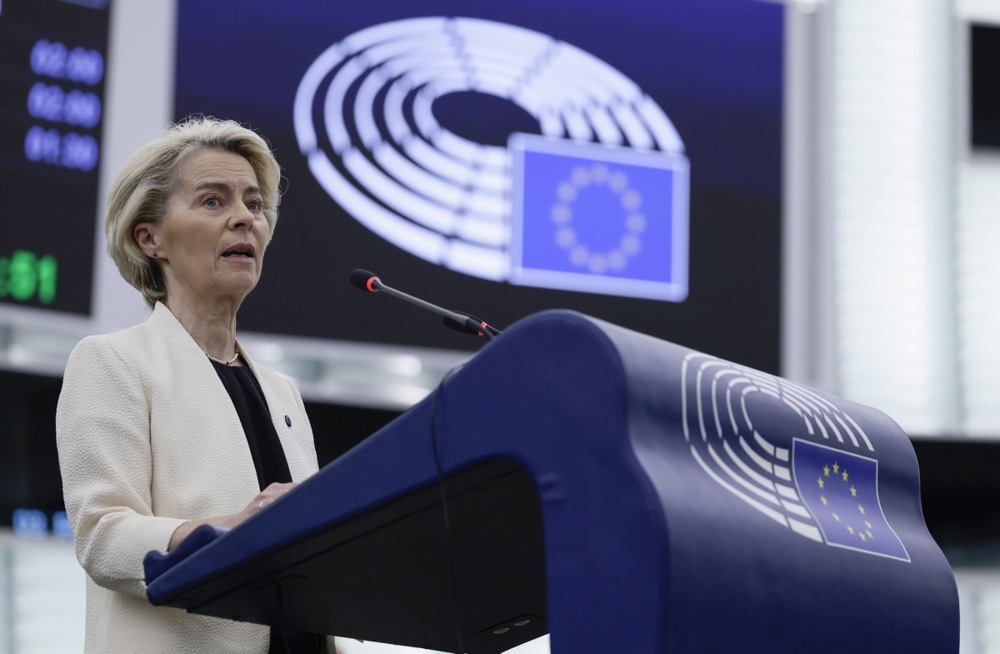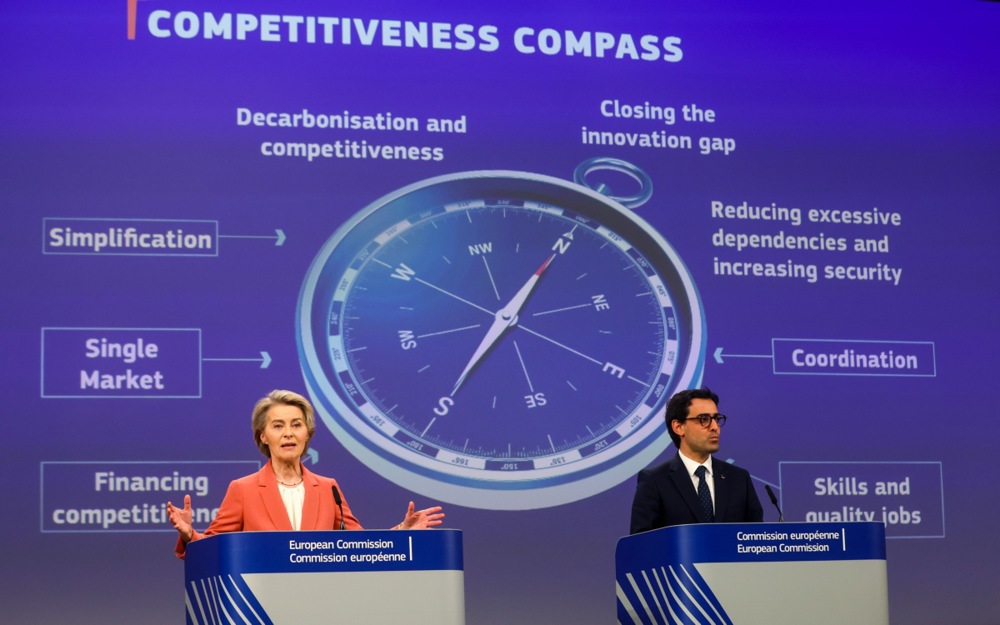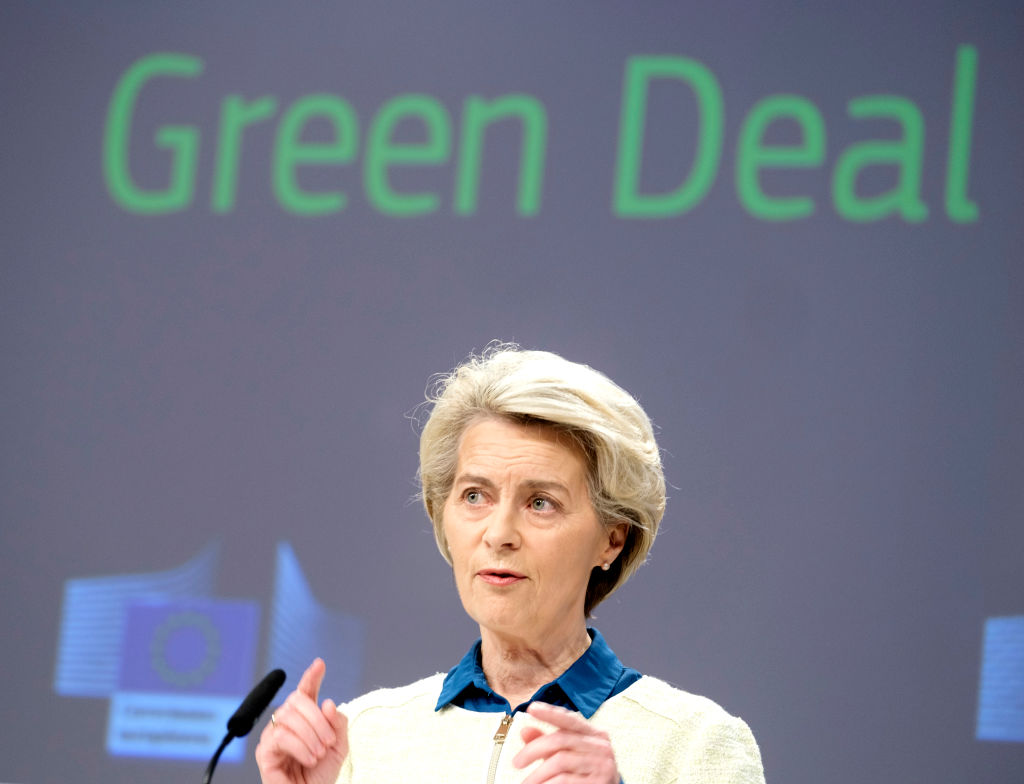JURI, the Committee on Legal Affairs in the European Parliament, has voted to pursue legal action against European Commission President von der Leyen’s €150 billion defence fund.
Europe’s rearmament plan will now be challenged at the European Court of Justice.
According to MEPs, the European Parliament was unconstitutionally excluded from the decision-making process.
In a secret ballot on June 24, 20 MEPs on the committee voted in favour of the legal challenge, with three opposing.
It was pointed out that the EP and the Council of the European Union (the member states) were co-legislators and must therefore jointly decide on EU legislation and budgets, including the new defence fund.
The MEPs found that establishing such a fund through a behind-the-scenes agreement between the EC and the Council violated the EU treaties and undermined the EP’s powers as a co-legislator, thus bypassing the democratic control of the Parliament.
According to the EP’s Socialists and Democrats (S&D) group, the EC had found a way to hijack the EU decision-making process by ignoring other legal options that would have successfully involved the EP.
They called it “a threat to the institutional balance of the Union”.
Ana Catarina Mendes, S&D vice-president for Strong Democracy and Rule of Law, said: “This is just one example among many of how the Commission is pulling out all the stops to undermine the Parliament’s rights and duties.”
She said she thought the proposed €150 billion in loans for defence were a step in the right direction, adding: “But this cannot be done – neither to the detriment of our democratic system nor putting into question our European institutional balance.”
Mendes took a swing at von der Leyen, noting what she said was her “repeated decisions to bypass this institution through emergency legislation.”
Mendes added that “has become a dangerous trend, putting trust between EU institutions at stake”.
René Repasi, S&D co-ordinator for the committee on legal affairs and standing rapporteur for disputes of the European Parliament, said: “The Commission President Ursula von der Leyen is pursuing a clear strategy of consolidating power within the EU Executive.
“Her latest move – pushing through the SAFE instrument for financial assistance in the field of defence without involving the European Parliament – is not just a procedural overreach. It is part of a broader pattern that threatens the EU’s institutional balance.”
The Security Action for Europe (SAFE) was a new EU financial instrument aimed at boosting European defence capabilities through joint procurement.
The criticisms echoed those made by the French Right. On March 3, National Rally (RN) de facto leader Marine Le Pen said von der Leyen was “arrogating powers to herself that are not hers”.
RN President Jordan Bardella added: “Ursula von der Leyen has neither the competence in terms of prerogatives nor even the mandate to grant herself defence.”
In 2023, SAFE was framed as a response to global supply chain risks, defence shortfalls and competitiveness needs.
From the start, the EP had called for a community approach and raised concerns regarding democratic oversight.
The EC moved ahead anyway and in March 2025 the SAFE platform was relaunched in full form under the “ReArm Europe” initiative, with a specific focus on defence spending, including €150 billion in loans and procurement support.
SAFE was formally adopted by the Council of the EU, bypassing the EP using a legal route that did not require a joint-decision.
The EC chose Article 122 of the Treaty on the Functioning of the EU, a clause normally reserved for economic emergencies.
EP President Roberta Metsola did not agree with this and considered legal action over the use of the emergency clause to bypass the Parliament.
Von der Leyen ignored her objections, saying the use of the clause was justified and claimed it was “an exceptional and temporary response to an urgent and existential challenge”.
After the SAFE agreement was confirmed in the Council of the EU in March, von der Leyen said it was proof of “exceptional times” needing “exceptional measures”.
Former president of the European Council, Charles Michel, has derided European Commission President Ursula von der Leyen’s Rearm Europe plan, saying it was “insufficient” and “late”. https://t.co/MQydp6RQNZ
— Brussels Signal (@brusselssignal) March 6, 2025





